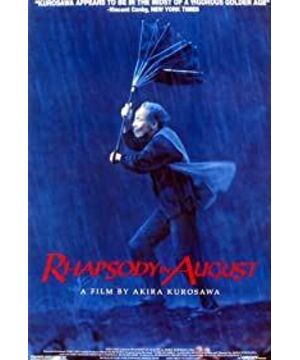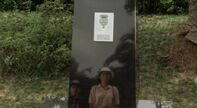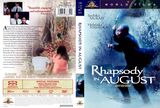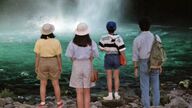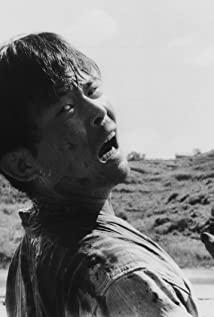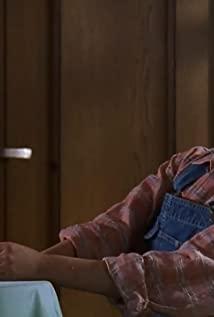Don't forget history, be sincere, remember history with your eyes, reflection, and sincere remembrance, so that mankind will not suffer such evil again. -Accompanied by the end of the melody of "The Wilderness", I can get a simple insight.
For most people, the atomic bomb explosion is nothing more than an event that happened a long time ago. Moreover, no matter how horrible things are, they will be forgotten over time.
The above paragraph is the line in the film, it tells the viewers the forgetfulness of human beings, and for the so-called victory of glitz, there are still endless wars and crimes. As grandma said, forty-five years after the war, the United States continues to kill people.
1945 8.9 11:02
This is the number on the school monument. Everyone knows what it means. The comparison between the ignorant play of the students and the memorial of the people who have experienced this difficulty reflects the cruelty of the passage of time to history. It is a horrible and tragic relic, gradually being washed by time. It is said that Japan at least still has a monument to comfort the dead, and we have also been eradicated completely, let alone comfort.
This is a rhapsody, of course it has its melody. The melody learned from the film is:
"Wild Rose"-the opening of the film against the sky, cicadas, cloud pillows, and hidden eyes.
"Symphony of Destiny"-the excitement of the old piano.
"Kitten Fuzette"-children playful and cheerful.
"The Wilderness"-with lyrics:
Seeing children in the wild flowers blooming in bright colors, staring into the wild red in the distance.
The lyrics seem to convey the eyes on the movie poster, through which you can see beauty and peace.
Some philosophies (personal opinions) reflected in the film:
"Even if I haven't seen Grandpa, he must be here." Human existence will not disappear without a trace of the body itself, on the contrary, some real existence Instead, it can be the soul instead of the physical body. Perhaps we should put a third eye in the back of our head and look at the back of us. In fact, there is the existence of the soul.
The things in the film that remain intact are those ruined walls, as if all the angels were crying. Man-made disasters are not something added by the heavens. It is the blame for humans to kill each other, and angels can only comfort the world with tears.
The sculptures donated to Nagasaki by countries all over the world, including China, I’m surprised that there are so many disasters in my country. It’s incredible that I don’t reflect, repent and admit mistakes, but have the heart to mourn the dead in other countries. Of course the United States is not included. It was the United States that set the atomic bomb, my sister replied.
When the three children were silent on their way home after viewing the ruins, they had already received a thorough humanity education, which was direct and specific.
The grandmother described the Kappa's appearance: His hands and feet, which were as thick as cucumbers, were as green as the leaves on the grass. Before that, I just imagined the kappa by myself, and the kappa that grandma looked at was mysterious and cute.
For her elder brother, grandma has many stories about them:
Story one, XX and the married woman elope to live by two cedar trees that are disconnected from the middle.
Story two, Lingji and her saw eyes in the cracks in the sky on the day of the atomic bombing. ——Is that the eyes formed by the accumulation of the anger of the undead?
Story three, Lingji drowned, what did the kappa do?
Regarding death, grandma has such a narrative that she either died in front of the atomic bomb or died in the ground. This is back to the concept that I mentioned earlier that the living person is dead and the dead person is still alive. This is just as she said, "When I want to speak, aren't there people who are silent?" These are all truths. But the death of the human body is an unchanging natural law.
At the end of the film, after the missed meeting with Xierlang's brother, grandma walks into a new pain. She began to behave abnormally. One day, there was a celestial phenomenon similar to that of 1945 8.9. Grandma was walking in the direction of Nagasaki. Perhaps she wanted to tell her grandpa and the people there that the atomic bomb was about to come, so she hurried to escape!
How she looked forward to a prophet that year telling people that disaster would happen, and at this time, she was playing such a role.
ps: The text in the middle of the sacred platform "all meet in one place" means meeting and then being together in the world.
And the following Ant Road symbolically represented the concept of this one place, for the common goal, the Japanese citizens who can work together to fight against disasters.
Regarding reflections on war, Akira Kurosawa did not mention it in the film. For example, his grandmother said: War is annoying to everyone. He was only focusing on the Japanese reflection on the atomic bomb in Nagasaki. He didn't have to take into account too many other factors. The so-called many crimes committed by Japan in its aggression against other countries are introspection and analysis of another incident on another level. Therefore, they cannot be confused.
I also want to say that there is no victor in the war. As my grandma said in the film, many people died in Japan and many people died in the United States. Everyone is a loser. And this kind of consideration for people has always been Kurosawa Akira's killer feature, and it has not been lost in this film, so it is difficult to agree with his statement that this film is too hypocritical. (Maybe we should all watch it a few more times. The voice that Kurosawa wants to express is often deeper and longer.)
View more about Rhapsody in August reviews


